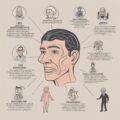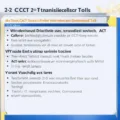Understanding Acceptance and Commitment Therapy
Acceptance and Commitment Therapy (ACT) is a form of psychotherapy that focuses on helping people accept difficult thoughts and feelings while still living a values-driven life. Instead of trying to control or eliminate unpleasant internal experiences, ACT teaches people to make room for them with self-compassion.
The Benefits of Practicing ACT
Research has found ACT to be effective for a wide range of mental health conditions including anxiety, depression, addictions, eating disorders, chronic pain, and more. It has been shown to reduce distress and improve quality of life. By focusing less on symptom reduction and more on valued living, ACT helps people thrive despite the presence of symptoms.
Top 10 Books to Learn About ACT
- The Happiness Trap by Russ Harris – A practical guide to using ACT principles to deal with painful thoughts and feelings.
- Get Out of Your Mind and Into Your Life by Steven Hayes – A foundational book explaining the ACT model and how to apply it.
- Learning ACT by Jason Luoma, Steven Hayes and Robyn Walser – An introduction to the six core processes of ACT.
- The Mindfulness and Acceptance Workbook for Anxiety by John Forsyth and Georg Eifert – ACT skills for managing anxiety.
- The Mindfulness and Acceptance Workbook for Depression by Kirk Strosahl and Patricia Robinson – Using ACT to overcome depressive symptoms.
- The ACT Workbook for OCD by Steven Hayes – Applying ACT to obsessive-compulsive disorder.
- The ACT Deck from PESI Publishing – Flashcards summarizing key ACT concepts and practices.
- The ACT Approach: A Comprehensive Guide for Acceptance and Commitment Therapy by Timothy Gordon – An ACT manual for mental health professionals.
- Learning ACT for Group Treatment by Darrah Westrup – How to facilitate ACT groups.
- The Thriving Adolescent by Louise Hayes and Joseph Ciarrochi – Teaching ACT skills to teenagers.
Key Takeaways
The most important things to understand about Acceptance and Commitment Therapy:
- It teaches psychological flexibility rather than control of inner experiences.
- The focus is on valued living more than symptom reduction.
- Clients learn to accept unpleasant thoughts, feelings and sensations when control strategies don’t work.
- ACT has been shown effective for many mental health issues.
- There are great self-help books to learn these powerful skills.
Frequently Asked Questions
What conditions is ACT used to treat?
ACT has been shown scientifically effective for anxiety, depression, addictions, eating disorders, OCD, chronic pain, psychosis, stress, grief, self-harm, anger issues, sleep problems and relationship difficulties among many other conditions.
How is ACT different from CBT?
Unlike CBT, ACT does not aim to directly challenge or change the content of thoughts. Instead the focus is on changing our relationship to thoughts by accepting them without believing or disbelieving them. Values clarification is also a core ACT component.
What happens in an ACT therapy session?
Common ACT techniques include mindfulness exercises, metaphors and stories, clarifying personal values, defusion techniques to reduce believability of thoughts, willingness to have unpleasant experiences, and committing to actions aligned with values.
Are there self-help options for learning ACT?
Yes! Many excellent ACT self-help books and workbooks are available (some listed above). Free ACT resources also exist online. Apps like ACT Coach provide an introduction. Still, working with a qualified ACT therapist can be very valuable for practicing the skills.
How long does it take to see results from ACT?
People often report rapid benefits from starting ACT skills like mindfulness and values work. However, building psychological flexibility is an ongoing journey. Continued growth and life enhancement can unfold across months and years of practice.









